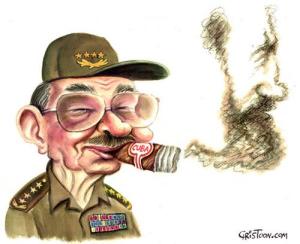
As any Catholic knows, our confessions are twofold. First, you tell the priest your sins, or “recount your tragedies” as we used to say in Catholic school. Second, the priest gives you a little homework, or a few prayers to say to move on.
Well, if the Democrats were confessing then it may go like this: “Father, I am really sorry that I’ve been looking down at all of those religious people or calling them racists if they disagree with Obama, or calling them homophobes if they believe in traditional marriage, or referring to them as fascists because they want the Ten Amendments on the courthouse walls.”
Father may tell them to say a few Hail Marys and Our Fathers.
On a real note, the Democrats have a religion problem, and Democrat Michael Wear is reminding them of it. In an exchange with Emma Green at the Atlantic, Wear said:
Green: Why is it, do you think, that some liberals — and specifically the Democratic Party — have been unwilling to do outreach to people who hold particular kinds of theological points of view?Wear: They think, in some ways wrongly, but in other ways rightly, that it would put constraints around their policy agenda. So, for instance: You could make a case to evangelicals while trying to repeal the Hyde Amendment, [which prohibits federal funding for abortion in most circumstances,] but that’s really difficult. Reaching out to evangelicals doesn’t mean you have to become pro-life. It just means you have to not be so in love with how pro-choice you are, and so opposed to how pro-life we are.The second thing is that there’s a religious illiteracy problem in the Democratic Party. It’s tied to the demographics of the country: More 20- and 30-year-olds are taking positions of power in the Democratic Party. They grew up in parts of the country where navigating religion was not important socially and not important to their political careers. This is very different from, like, James Carville in Louisiana in the ’80s. James Carville is not the most religious guy, but he gets religious people — if you didn’t get religious people running Democratic campaigns in the South in the ’80s, you wouldn’t win.Another reason why they haven’t reached out to evangelicals in 2016 is that, no matter Clinton’s slogan of “Stronger Together,” we have a politics right now that is based on making enemies, and making people afraid.
Mr. Wear is right that our politics is vicious. I don’t know when it actually started but the attacks on Judge Bork in 1987 may be a good starting place.
Nevertheless, I would add a couple of personal observations to the Democrats’ religion problems.
The party is not just preaching separation of church and state, a concept that I support. Instead, they are hysterical about taking God completely out of the public arena.
How else do you explain these fanatics who want to remove Nativity scenes from public places? Why can’t these people just walk by and go on with their lives?
Or the insane reaction to having The Ten Commandments on the courthouse wall? What is wrong with a message that tells people not to kill and steal, and to respect their parents? When did that message move to the wrong side of history?
Also, many in the party continue to insult our intelligence referring to abortion as “reproductive rights”. Talk about a corruption of the language!
Then there is the insane equivalence of illegal and legal immigration.
Then there is the insane equivalence of illegal and legal immigration.
Yes, the Democrats would be well served to tolerate those of us who disagree with them. It would help if they would stop referring to us as racist, stupid, or whatever other insult they can come up with.
In the meantime, they will continue to lose elections if they don’t confess and change their ways.
P.S. You can listen to my show (Canto Talk) and follow me on Twitter Catch our show with Chris Corbett about religious freedom:
Tags: Religion and Democrats To share or post to your site, click on "Post Link". Please mention / link to the My View by Silvio Canto, Jr. Thanks!












